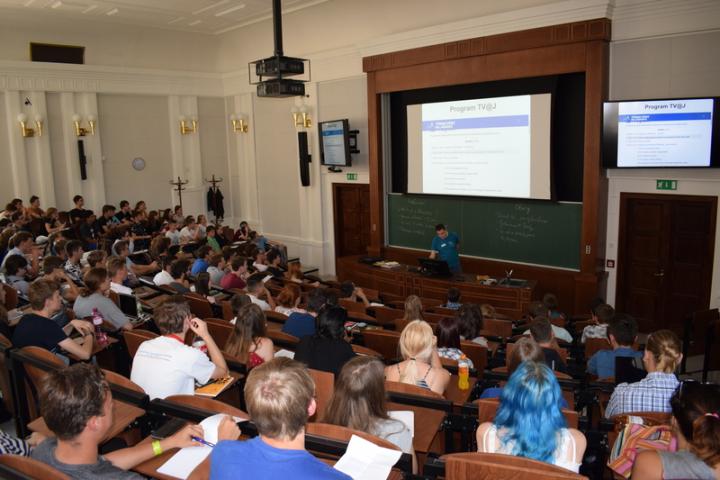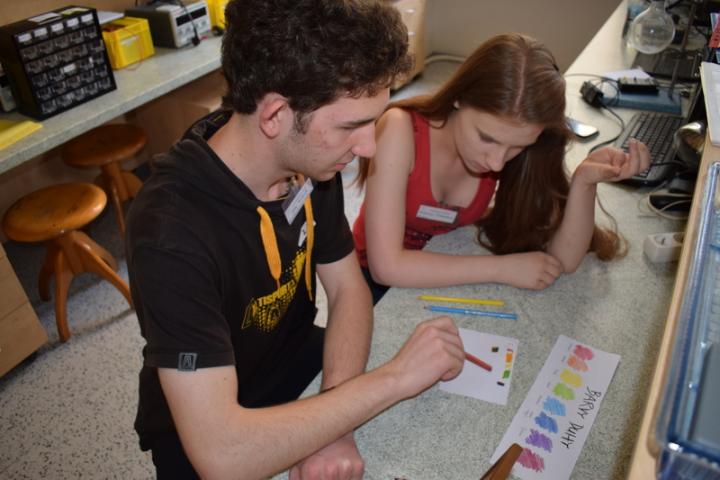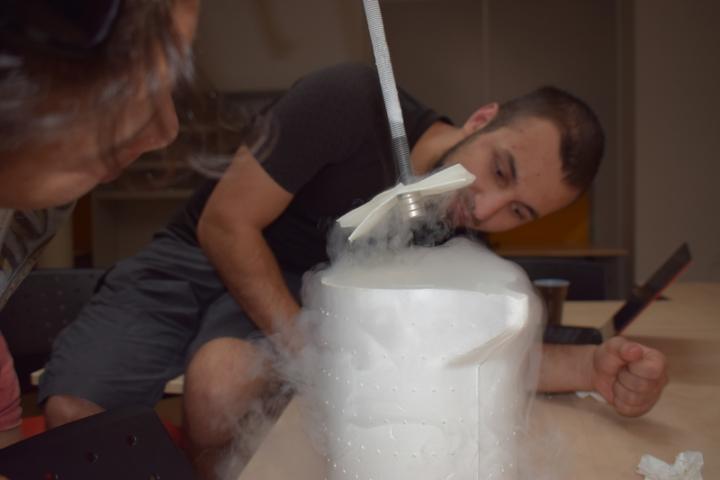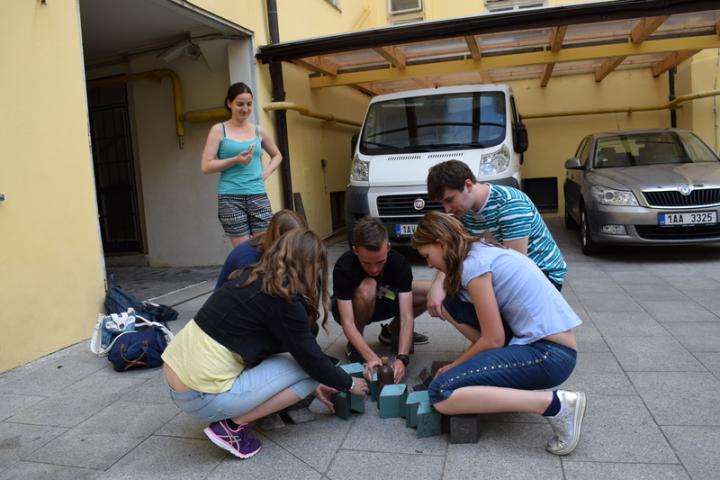
The science week began traditionally on Sunday, 17 June with registration and the first popular lectures in physics, chemistry, informatics and related fields. In the afternoon and evening hours, students in five-member teams besieged the “Brehyard fortress”. This meant accomplishing as much tasks by faculty students as possible.
Over the following two days, the main works on the miniproject continued. During these days, high school students, with the help of their supervisor, got acquainted with the given scientific issues, elaborated the article in the proceedings and its presentation for the final student conference. They had a unique opportunity to be directly in the workplace where current science is being implemented and to work with various modern devices. Among the most popular were miniprojects onradioimmunolysis, analysis of the radiation load in aircraft and construction of laser sight. On Monday, besides the next lecture, the participants were able to enrich their visit to Prague by visitng a ceremonial concert performed by the Prague Conservatory's Popular Music Department.
The last two days were devoted to presentations of the results of individual groups. These took the form of a standard scientific conference with oral contributions. And as in a regular conference, the penultimate evening was the traditional social evening with various games and refreshments.
The results of this year's and past Science Weeks at Nuclear Faculty can be found on this page.


